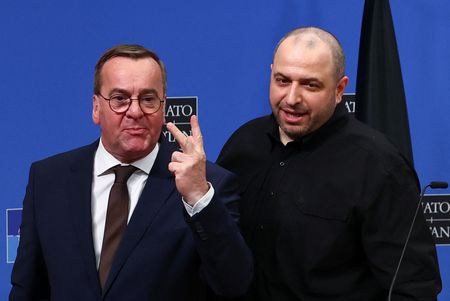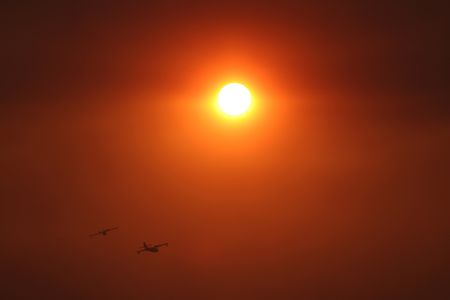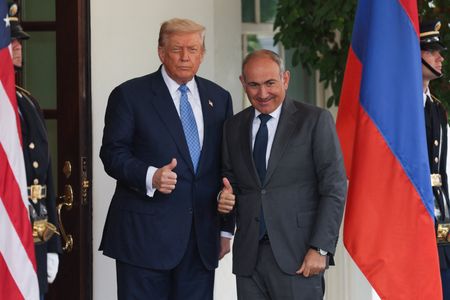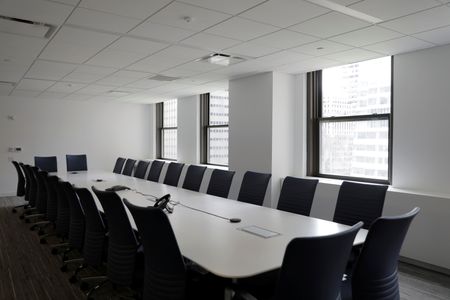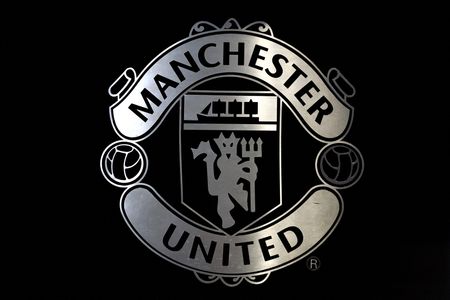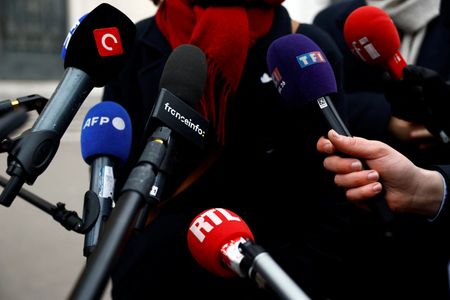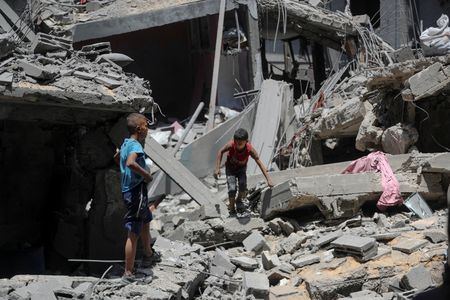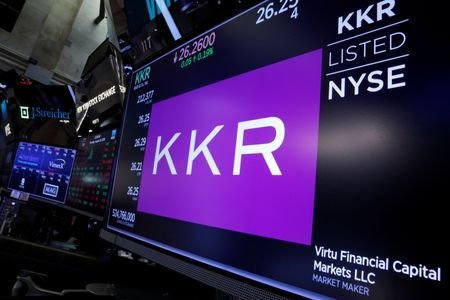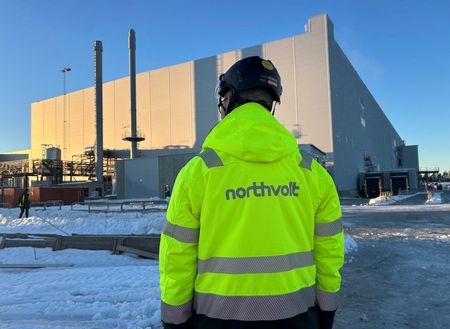By Andrew Gray and Sabine Siebold
BRUSSELS (Reuters) -Germany and Britain sent a message to Russia on Friday that Ukraine will be able to keep up its fight thanks to Western support, even as the U.S. pushed ahead with talks with Moscow.
The European powers for the first time co-led a meeting of the so-called Ramstein group of some 50 countries that give military support to Ukraine after Washington gave up the chair, and said they could not detect any signs that Vladimir Putin was ready for peace.
As they met, U.S. President Donald Trump’s special envoy Steve Witkoff flew into Russia for what looked likely to be talks with the Russian president.
“Given Russia’s ongoing aggression against Ukraine, we must concede that peace in Ukraine appears to be out of reach in the immediate future,” German Defence Minister Boris Pistorius said after the gathering at NATO’s headquarters in Brussels.
The Ukraine Defense Contact Group, as it is known officially, was set up by the U.S. under the Biden administration to coordinate military aid to Ukraine and push governments to deliver more.
But the Trump administration, which has put its future military support for Ukraine in question as it presses both sides for a ceasefire and tries to end Russia’s isolation, has stepped back from leading it.
Speaking to reporters, both Pistorius and his British counterpart John Healey sought to reassure Ukraine that the West’s military support would last.
“We will ensure that Ukraine continues to benefit from our joint military support. Russia needs to understand that Ukraine is able to go on fighting, and we will support it … Ukraine can count on us,” Pistorius said.
Healey described 2025 as a crucial year in Ukraine’s fight against Russia’s invasion: “Now is the critical moment in that war … and we are saying to Ukraine: we stand with you in the fight, and we will stand with you in the peace.”
Pistorius played down the fact that U.S. Secretary of Defense Pete Hegseth attended the meeting only virtually, saying this was down to scheduling reasons, adding: “The most important fact was that he took part.”
But Pistorius acknowledged that it was not clear how U.S. participation and support would develop in future.
Ukrainian President Volodymyr Zelenskiy also joined the meeting by video link.
Ukraine’s main European allies have been keen to keep the Ramstein group going to maintain pressure for arms donations to Ukraine and to demonstrate continuing support for Kyiv.
At the meeting, both Britain and Germany outlined their latest pledges of military aid for Ukraine.
Germany’s package included four IRIS-T air defence systems with 300 missiles. Britain said that, together with Norway, it would fund radar systems, anti-tank mines and hundreds of thousands of drones.
(Reporting by Sabine Siebold, Andrew Gray, GV De Clercq and Benoit Van Overstraeten; Editing by Kevin Liffey)

